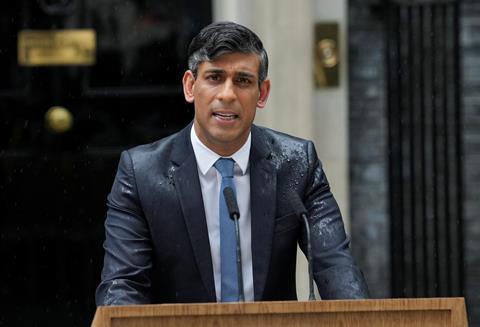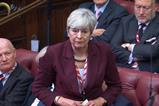Does the news of a general election fill you with excitement, fear or just a sense of general apathy or confusion? James Mildred explains why Christians should be hopeful and prayerful in engaging with politics

After a day of frenzied speculation, with Westminster becoming increasingly febrile, the Prime Minister has announced the next General Election will happen on Thursday 4 July.
For the next six weeks, Rishi Sunak, Keir Starmer, Ed Davey and other leading politicians will have the chance to win your vote.
Perhaps you’re excited, or just feel a sense of weariness. Maybe you are hopeful about what the prospect of a potential change in government may bring, or fearful of what a change might mean.
Government is God’s idea and it is there for our good
Personally, only a few weeks ago, I felt nothing but weariness and fatigue. But as rumours of an election grew - and have now given way to reality – I am reminded of what a gift democracy is.
The election is a golden opportunity for the Church to show up and engage. And the good news is that Christians do just that. Research shows that time and again, Christians take this opportunity seriously – which is fantastic.
The Christian call to engagement
God calls us to care about our society as the salt and light of the world (Matthew 5:13-16). We’re explicitly told to do justice (Micah 6:8). In light of this, engaging well and voting becomes an act of worship to our God. What greater motivation do we need?
Jesus told us to love our neighbour and, if we care about them, we care about the laws and policies that come out of Westminster and the impact it has on their lives. Voting is a chance to not only hold MPs to account, but it also provides space for us to engage directly with local candidates and contribute to the common good of society.
Doing so gives the Church the chance to ask questions no-one else will be asking. So, let’s quiz politicians, both on the big issues that everyone will be asking about, such as economic justice, caring for our planet, and a fair immigration system, but also the issues that perhaps no-one else will, such as abortion and assisted suicide.
I think we should also ask candidates about their worldview and moral vision, and look carefully at their character. Do they listen well to others? What does their social media profile say about how they operate? Do they care for their local area? Do they have views on religious freedom and free expression for all?
Engaging well
And in our engagement, we need to avoid hypocrisy. If we’re going to challenge candidates over their convictions and conduct, we must act with integrity and sincerity as well. We can care passionately about justice, but let’s pursue our values with humility and grace.
While we can’t know the outcome of this election yet, we do know that all human authority comes directly from God. Romans 13:1-7 is quite clear that government is God’s idea and it is there for our good.
The election is a golden opportunity for the Church to show up and engage
It is a freeing thing to engage in an election knowing that God is absolutely on the throne. As Psalm 2 says, Jesus is the anointed King and the ultimate ruler of the universe. Moreover, the Bible makes clear that God, in his providential rule over the world, raises up leaders and brings them down.
This reality should compel us to cover this election in prayer. At CARE, we’re passionate about equipping the church to engage with politics and social issues. Tomorrow, we’ll launch our dedicated election website, engaGE24, designed to help you engage with this election well.
I hope you’ll show up and vote. And I hope you’ll do so with faith and prayerful optimism.






































2 Readers' comments